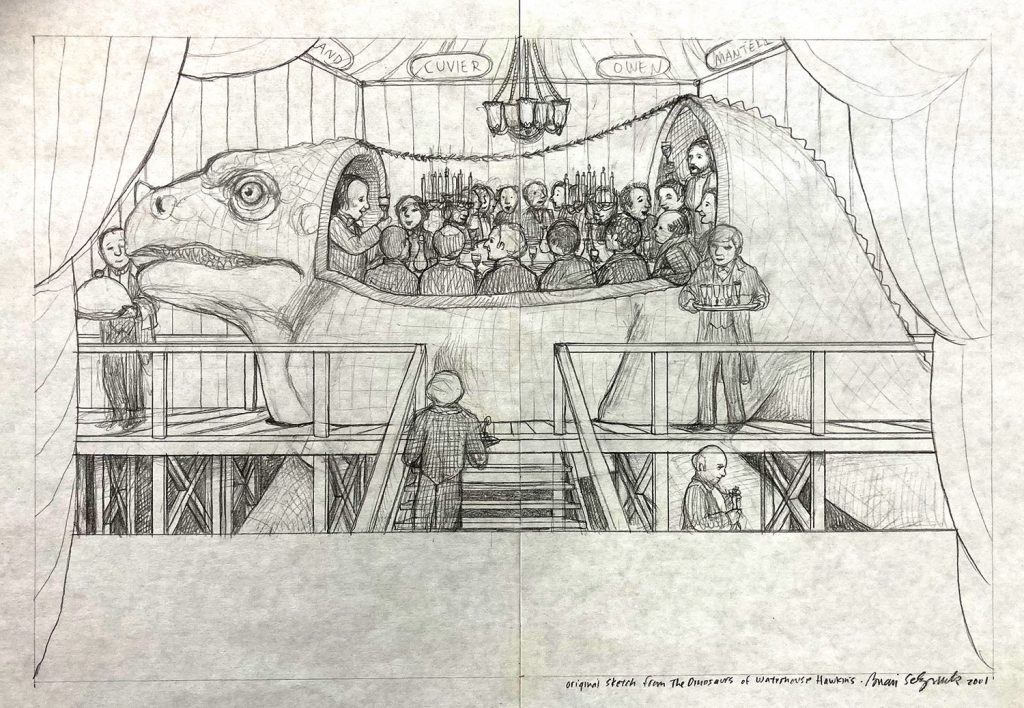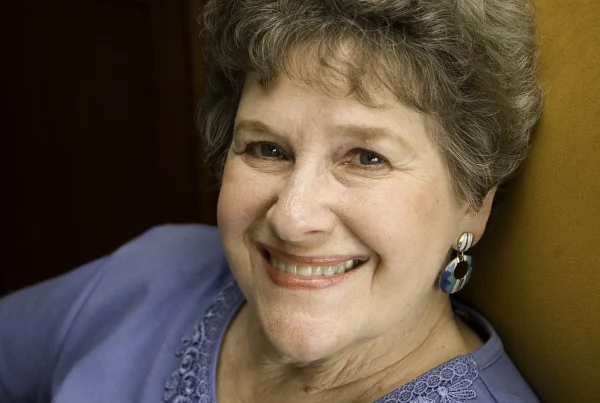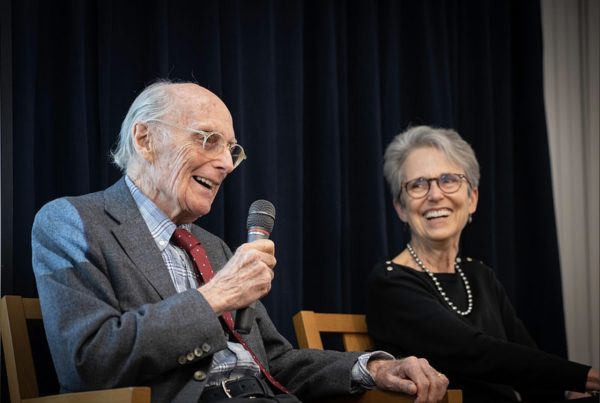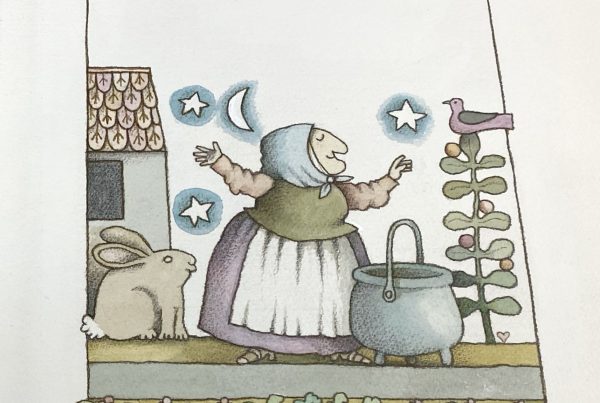The sketch is an illustration for ‘The Dinosaurs of Waterhouse Hawkins’
By Katie Miller

Pencil sketch for an illustration by Brian Selznick for the book “The Dinosaurs of Waterhouse Hawkins,” a children’s picture book biography of Benjamin Waterhouse Hawkins.
Wind your way through London’s Crystal Palace Park, and there you’ll find them: Plesiosaurs and Teleosaurs crouched in murky pond water, Megalosaurs towering amongst the trees. These life-sized sculptures might not be very accurate by today’s paleontological standards, but they represent a fascinating slice of history nonetheless.
Though the first dinosaur fossils were discovered in England in the 1820s, by the 1850s scientists still had no comprehensive model for what these giant prehistoric creatures might have actually looked like. So, in 1852 , Victorian artist and sculptor Benjamin Waterhouse Hawkins — with help from scientist Sir Richard Owen — was commissioned to build life-sized replicas for the park.
His goal, as Barbara Kerley writes in the children’s book , “The Dinosaurs of Waterhouse Hawkins,” was nothing short of transformative: “he wanted to create such perfect models that anyone … could gaze at his dinosaurs and see into the past.”
“[Hawkins] wanted to create such perfect models that anyone … could gaze at his dinosaurs and see into the past.”
—Barbara Kerley in her book, “The Dinosaurs of Waterhouse Hawkiins”
“The Dinosaurs of Waterhouse Hawkins,” written by Barbara Kerley and illustrated by Brian Selznick, traces the life of Waterhouse Hawkins and how these time-worn sculptures came to be. Through vivid, playful illustrations, Selznick invites readers young and old alike to follow along with Waterhouse Hawkins as he recreates an unimaginable past, from modeling to molding to unveiling his creations to a panel of England’s leading scientists (over a sumptuous dinner party, of course). Selznick’s work earned the book a Caldecott Honor for its illustrations in 2002.
Now, thanks to a generous donation by Carol Erdahl — one of the former and founding owners of the Red Balloon Bookshop — the University of Minnesota Libraries’ Kerlan Collection of Children’s Literature contains one of Selznick’s original pencil sketch illustrations for the book. Curious readers can learn more about the Kerlan, as well as Brian Selznick’s robust oeuvre as an author and illustrator.
Though Waterhouse Hawkins’s sculptures might be known today more for what they got wrong than what they got right, captured in Brian Selznick’s precise pencil strokes is a kind of undeniable wonder: poised on the ledge of the unknown, we are encouraged to imagine a time and place beyond our own.




